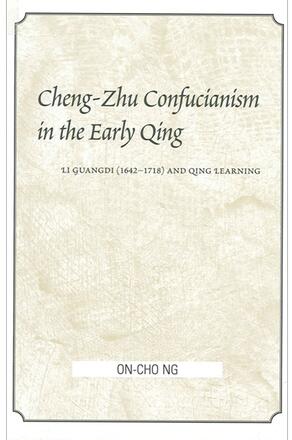
Cheng-Zhu Confucianism in the Early Qing
Li Guangdi (1642-1718) and Qing Learning
Alternative formats available from:
Examines the thought of Li Guangdi, an exponent of the Cheng-Zhu school of Confucianism and a powerful statesman during the Qing dynasty.
Description
This first book-length study of the Cheng-Zhu School of Confucianism in the early Qing period explores the thought of Li Guangdi, a powerful official in the court of the Kangxi emperor. On-cho Ng undertakes close readings of Li's ideas of ultimate truths and first principles, while situating them in the context of the intellectual concerns of sixteenth- and seventeenth-century China. Addressing philosophical issues neglected in scholarship on early Qing learning, the author offers a new angle from which to view the Ming-Qing intellectual transition and the formation of early Qing thought. He argues that Cheng-Zhu learning, far from being out of step with the epochal climate of thought because of its putative preoccupation with the ultimate and the transcendent, was actually a dated reflection of, and active contributor to, early Qing thought. By tracing the contour and development of Li Guangdi's thought formulated within the bounds of inherited Cheng-Zhu teachings, this book reveals how philosophic discourses in traditional China were often dynamic, hermeneutic endeavors of reinterpreting and renewing received tradition.
On-cho Ng is Associate Professor of History at The Pennsylvania State University, and coeditor of Imagining Boundaries: Changing Confucian Doctrines, Texts, and Hermeneutics, also published by SUNY Press.
Reviews
"In this philosophical discourse on the goodness of human nature, Ng finds telling examples of Li Guangdi linking moral cultivation with empirical research and concrete social practices, thereby transforming the Cheng-Zhu metaphysics into a metapraxis—a program of moral self-cultivation informed by a metaphysical notion. " — Dao: A Journal of Comparative Philosophy
"Ng's book provides the best account of Cheng-Zhu Confucianism in the Qing period that I have seen in any language. It is sophisticated and fair-minded, showing perceptively how Li Guangdi diverged from the 'master,' Zhu Xi, while ardently defending him. The book is gracefully written, intellectually rigorous, and theoretically sophisticated. The author has an excellent command of the relevant Chinese and Japanese materials, and his translations are quite fluid. " — Richard J. Smith, Rice University